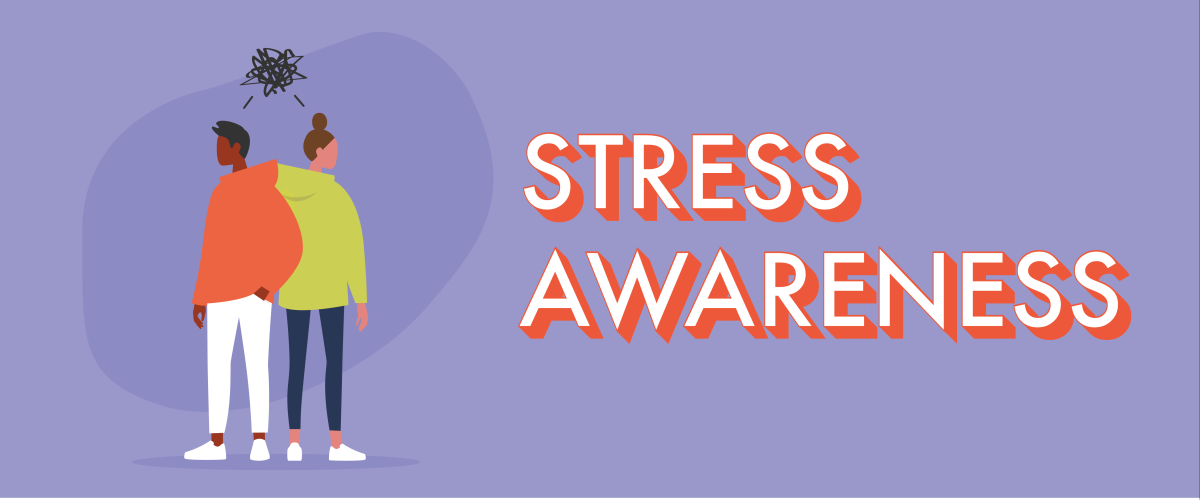
April is Stress Awareness Month and, as such, I’ve seen numerous articles telling the reader to just “let go” of their stress or avoid it altogether. Pardon me while I laugh derisively at those notions, just as I do when one of my doctors tells me I just need less stress in my life.
Do I have stress in my life? Let’s see …
- Single parent? Check.
- Small business owner? Check.
- Homeowner of a 100-year-old house that always needs some sort of work? Check.
- See also: The cats need to go to the vet, and it’s time to start spring yard work, planting and cleaning.
My to-do lists at work and home are never-ending. I will never run out of laundry or cleaning that needs done. Pretty normal stress levels for anyone, I would guess. But, oh, did I mention I do all this with a handful of chronic illnesses I started collecting before I was even out of high school?
So, yes, I have stress and, no, I can’t just will it away. What might be a minor annoyance, causing a few minutes of anxiety for a healthy person, has much higher stakes for those who are constantly at battle with their own bodies.
I think it’s fair to say the majority of people understand to some extent the toll stress takes on us mentally. Something as simple as a looming deadline on a project (such as writing this blog post), having to speak publicly, or being stuck in bad traffic can cause daily stress. The brain releases a series of hormones including adrenaline and cortisol that create the fight-or-flight response, the body’s own distress signal. This, in turn, triggers anxiety, panic attacks and other neurological responses.
For those who deal with these conditions chronically, the response is magnified. Anxiety increases and panic attacks are more frequent and severe. Loss of concentration, racing thoughts and heartbeat, and shortness of breath are all common, immediate manifestations of this process, but for people without these disorders, they’re often brushed off as a moment of stress and soon forgotten.
The effects of stress aren’t as easily swept aside for people with chronic illness. Those with autoimmune diseases regularly see symptom flare-ups with even short-term stress and can fall out of remission with continued stress. The increase in hormone levels released during the stress process activate the immune system, which in turn accelerates the body’s own attack against itself, which is the core of autoimmune disease in general. There are even studies that suggest stress-related disorders such as PTSD can actually cause autoimmune diseases.
For diabetics, cortisol released during the fight-or-flight response increases blood sugar levels and suppresses insulin production. Some studies suggest that long-term stress can even cause Type 2 diabetes in otherwise-healthy people over time. Other conditions that stress can contribute to or aggravate include heart disease, irritable bowel syndrome (IBS), Alzheimer’s disease, circulatory problems, sleep dysfunction, obesity and even the common cold. There are new studies that indicate excessive stress can be linked with the recurrence of cancer.
In short, stress can have lifelong and life-threatening effects on people with chronic illness.
So what can we do about it? Again, I don’t believe anyone has the power to simply live without stress. If you’ve figured out that secret, please share with the rest of us. What I have learned over the years is that while we can’t eradicate stress in our lives, we can learn to manage it, to control it before it controls us.
I don’t believe there’s a simple, bullet-point list of things that will work for everyone to do this. It’s about finding what works for you. But I can share what works for me personally. If you are someone living with chronic illness, it’s crucial to find ways to manage your stress.
Be organized/plan ahead. There’s nothing more stressful to me than the unplanned — be it expenses, repairs, trips, even visits from friends. Know what’s coming, know what your next steps are. Keep an accurate calendar. I’m definitely on more solid ground when I know what to expect. But also plan for down time, plan for hobbies, plan for things that help you de-stress. Yoga, exercise, reading, art, sports, fishing … it’s different for everyone, but find what helps you clear your mind and just enjoy life for a while, and then make space for it.
Know your limits. You are not a superhero. Nobody can do it all, all the time. If a deadline at work seems impossible, ask for an extension. If the party you agreed to attend is making you anxious, it’s OK to back out. Not feeling up to tackling your taxes? Take them somewhere to be done for you. Your teenager stressing you out? Walk away, go for a drive, take a bath — whatever it takes to destress in that moment.
Give yourself a break. I can assure you if the house doesn’t get vacuumed, it won’t implode. When people come to visit, they’re there to see you, not check for dust bunnies under your couch. If you need a nap, take a nap. When you live with a chronic illness, your body needs rest — and regularly. It’s OK to not be OK. It’s also OK to ask for help when you need it — admittedly the hardest thing for me that I still struggle with. But when faced with stress that could be easily resolved with a hand from someone willing to give it, take the hand.
Accept that stress happens. The way you react to stress ultimately affects the severity of it. Learning to laugh at ourselves — and the stressful situations we find ourselves in — can reduce stress and the corresponding effects to your health. A good, hearty laugh relieves physical tension and stress, leaving your muscles relaxed for up to 45 minutes after. Laughter boosts the immune system. There’s a reason for the old adage “Laughter is the best medicine.”
The steps you take to manage your stress can and will make a difference, especially for those with chronic illnesses. Find what works for you.


